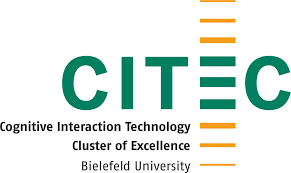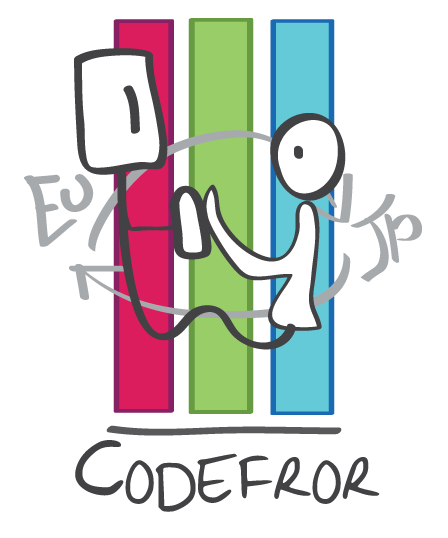Invited Speakers

Prof. Stefan Kopp
Bielefeld University
Titel: From embodied communication to social presence in dynamic human-agent interaction
Abstract
The effects and role of the embodiment of virtual and physical agents have been discussed in many studies. However, accumulating evidence suggests that the embodiment of an artificial agent is less important than the presence it is able to create. In this talk, I will discuss what it takes from an artificial agent to create and keep up a social presence with its human user(s). I will argue that social presence, while initially being induced through the embodiment and appearance of the agent, is a volatile perception formed continuously by the user during dynamic human-agent interaction. Importantly, it does not only depend on the appropriateness or lifelikeness of single behavioral responses, but is eventually contingent upon the degree to which an artificial agent can engage in meaningful embodied and cognitive interpersonal communication and coordination. I will present work to model such abilities in virtual and physical agents.

Prof. Massimiliano Cappuccio
United Arab Emirates University (UAEU)
Title: Embodied Social Robotics and its Theoretical Foundation
Abstract
We often hear that robots are embodied computational systems. It is assumed that any peripheral or actuator attached to a central processing unit constitutes ‘the body’ controlled by the robot. Such functionalist approach to robotics cannot do justice to the notion of embodiment. This approach risks confounding the real meaning of cognition by underestimating the role that the body plays in it. To correctly understand the legitimately cognitive role played by the body, I will introduce and briefly discuss the ecological, enactive, and phenomenological principles of embodied cognition theory. This theory, often contrasted to the instructionist, representationist and cognitivistic approach to cognition, has provided one of the richest scientific characterizations of the body in both biological and artificial cognitive systems. According to embodied cognitive science, the body is the medium that discovers the worldly surroundings of a cognitive agent in terms of opportunities of perception and action. The body is the background of experience, affect, and purposefulness against which these surroundings can be mapped in terms of meaningful adaptive behaviors. The role played by the body is not only instrumental to cognition, because it is the body itself that assigns an adaptive significance to any act of perception and action, scaffolding at the same time higher and more abstract forms of cognitive interaction, decision, and problem-solving. This means the body is not only the physical implementer of computational functions, but one of the very preconditions of cognition itself. For a long time, these ideas have been explored by the situated, embodied/enactive, and “soft” approaches to robotics, which over the years have provided some of the key theoretical contributions to the development of the embodied cognitive science paradigm. Today, these ideas are tested in the arena of applied social robotics: social cognition is inherently embodied because the relationship of empathic attunement between social agents is necessarily mediated and scaffolded by the details of their bodily constitution and organization. If the cognition social agents were not embodied in such a rich sense, only inferential off-line forms of social attunement would be possible among them. A cognitive agent can recognize another cognitive agent and correctly interpret its behavior only becoming sensitive to the goal-oriented opportunities of action enabled by its body, which in turn can be detected only in analogy with the body of the cognitive agent itself, and its first-hand interactive and manipulative capabilities.
Massimiliano L. Cappuccio is associate professor of Cognitive Science at UAE University, where he directs the Interdisciplinary Cognitive Science Lab. His work addresses theoretical issues in embodied cognition and social cognition combining analytic, phenomenological, and empirical perspectives. He is the principal investigator of two UAEU/NRF-sponsored research projects that focus on performance under pressure and human-robot interaction, respectively. With Mohamad Eid and Friederike Eyssel he organizes and chairs the yearly Joint UAE Symposium on Social Robotics (JSSR). He is currently editing the MIT Press Handbook of Embodied Cognition and Sport Psychology.

Prof. Tom Ziemke
University of Skövde
Title: Brains, Bodies & Buddies
Abstract
Rule 4 of the "Principles of Robotics" formulated by a number of researchers in the UK states that robots - but this presumably applies to virtual agents as well - are "manufactured artefacts" whose "machine nature should be transparent", and that "the illusion of emotions and intent should not be used to exploit vulnerable users". While at a first glance Rule 4 makes very much sense (at least to this speaker), upon closer inspection it seems to depend on at least two assumptions that are far from uncontroversial in the cognitive sciences today. Firstly, the assumption that humans - and presumably other animals as well - are not machines. Secondly, the assumption that humans - and possibly other animals as well - have real emotions and intent, whereas machines are at best capable of creating the illusion thereof. The concept of embodiment is of course crucial to evaluating these assumptions, but unfortunately it is far from well-defined. The talk will try to clarify how different notions of embodiment and its role in cognition and emotion, as well as work in social neuroscience, relate to current research on human social interaction with different types of autonomous technologies, such as robots, virtual agents, and automated vehicles.

Copyright (c) Katrin Solveig Lohan All Rights Reserved.




